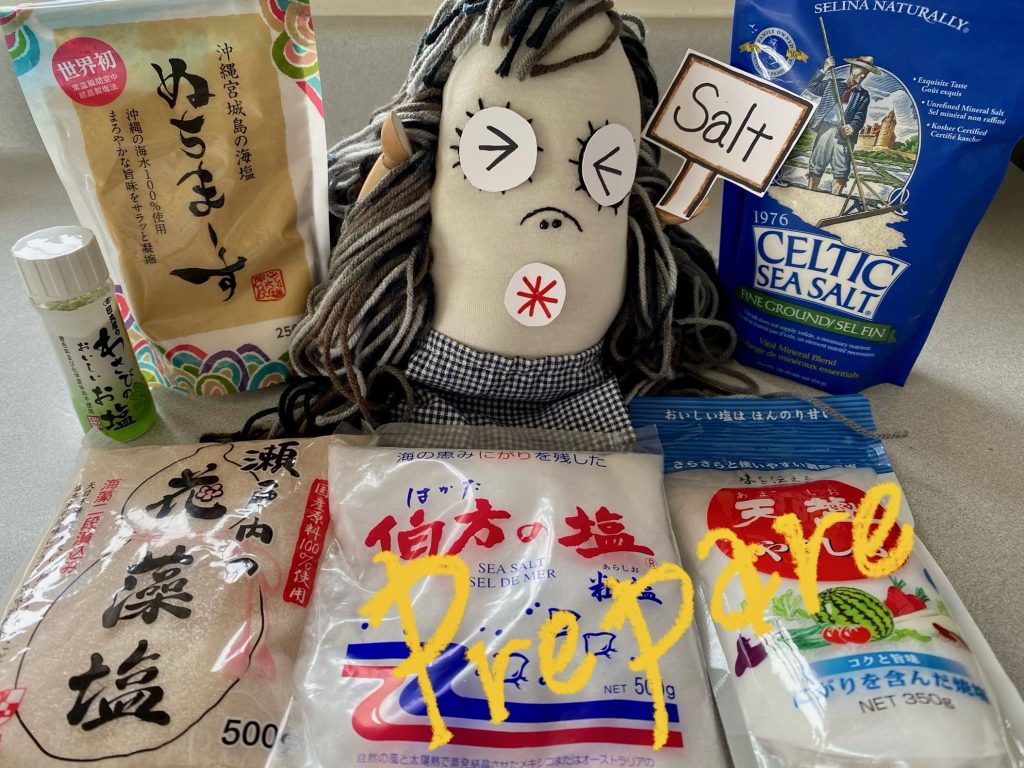
Salt? Why should we set up salt in our long-term stockpile?
Huh? Salt??
Which salt should I get?
How much salt should I buy?
Salt is essential for maintaining our health, and we can’t live without it.
Quite often, we eat food without realizing that it contains salt. Maybe you have never checked the list of ingredients on your food’s packaging, and you failed to notice the salt. Or maybe you never bothered to ask at your favorite restaurant how much salt they use in their recipes?
When you see the salt, before it goes into your food, you might think “that’s too much.” And you might feel like you never use a lot of salt in your own cooking. But… When you finally do check the list of ingredients for what you’re eating, you will be surprised.
In reality, you are taking in salt, constantly, probably without even realizing it.
Most of the sodium that children eat comes from processed,
packaged and prepared foods commonly found in grocery stores and served in restaurants.
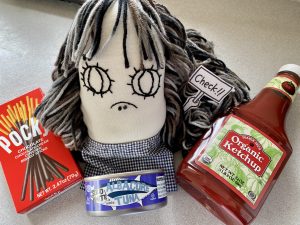
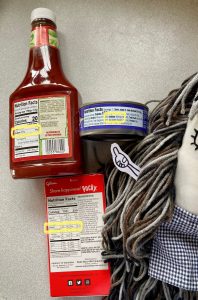
Please think about what happens in an emergency situation, when you suddenly stop eating salt. You might have food, you might have water, but let’s say you have no salt. What do you think will happen to your body??
Everybody knows taking in too much salt is very bad for your body (seems like everywhere you turn there are articles promoting the health benefits of a low-sodium diet), but people don’t often consider the opposite idea: too little salt.
Heat exhaustion and dehydration are very common when the body loses too much water or salt. Too much sodium in your diet can be unhealthy, but sodium is a critical electrolyte needed to deliver water to your body’s cells.
In emergency situations (and in everyday situations as well),
failure to ingest enough sodium can increase your risk of dehydration.
If you’re fighting to survive in a crisis,
dehydration is not another problem you want to have to deal with.
💡
Salt is more valuable than gold to some, because salt is essential for human life, and having salt to preserve food means you can eat year-round.
Salt deprivation punishment was actually used in Japan, during the Edo period, and in Siberian internment camps after World War II. Prisoners were simply fed a salt-free diet. The recipients of the punishment would become extremely tired and lethargic, making it difficult for them to perform basic, daily tasks.
The Latin word for salt is sal, and soldiers’ salt money was called salarium. Now we call it a ‘salary.’ Some sources say that Roman soldiers were given an allowance for the purchase of salt, or were paid directly in salt. Why salt? Because salt is a preservative. Having salt available meant that soldiers didn’t have to hunt for a fresh meal every day.
Salt is more valuable than gold to some, because salt is essential for human life, and having salt to preserve food means you can eat year-around.
I will post about food for our short-term stockpile, soon, and since much of the food for short-term storage already contains salt, we don’t need to worry about salt so much for our short-term stockpile. But the long-term stockpile is another matter. If you find yourself using the food from your long-term stockpile, it means your are in a critical situation. You will need to think about survival, and to survive, for the long haul, you need salt.
Which salt should we get?
There are many varieties of salt, from all over the world. We can get all kinds of salt, even rare ones, over the internet. I recommend you get many kinds of salt because if you are only taking one kind of salt, your nutrition will be unbalanced. Try to find varieties high in magnesium and potassium. And if possible, you should get some small salt packages that can be carried easily during an evacuation or that could be used for barter.
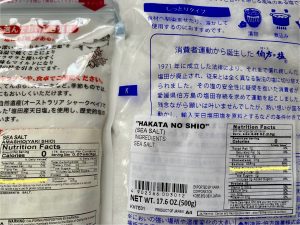
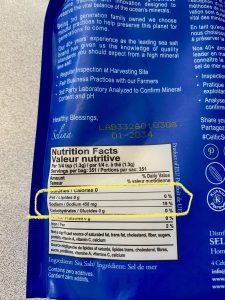
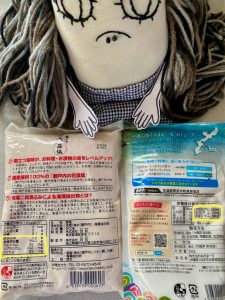
Personally I pick up sea salt with Nigari. Nigari is the liquid that is left behind after salt has been precipitated from seawater. It is rich in minerals such as magnesium, and calcium.
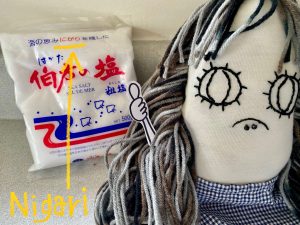
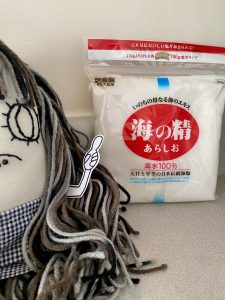
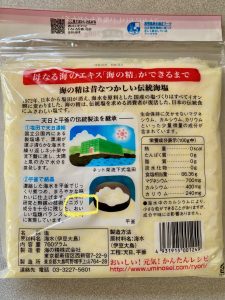
You may already know about iodized salt. In the United States, some salt is supplemented with iodine, to promote thyroid health. In Japan, the salt companies do not sell iodized salt because Japanese people get iodine from eating lots of seaweed, fish and shellfish. Japanese people don’t need to worry so much about iodine deficiency.
How about people who live far away from the ocean?
If you check which foods contain iodine (grain, eggs, etc.) and you eat enough of them,
you might not need to worry about iodine deficiency either.
How to store.
Pure salt without additives will last just about forever. The biggest enemy of salt is moisture, so it’s important to store it in an air- and water-tight container. Do not store salt in a metal container. Salt will corrode the metal, contaminating your salt and eventually allowing moisture inside.
Things to Remember
★Keep your food in a cool, dry place. No high humidity.
★Please do not forget that before eating long-term stockpile foods, absolutely check the food’s appearance and smell. Trust your five senses. Eat them at your own risk.
It is generally said that salt never goes bad. The Dietary Guidelines for Americans website recommends that adults limit sodium intake to less than 2,300 mg per day. In emergency situations, it will be difficult to measure your salt intake precisely, but that’s equivalent to about 1 teaspoon max (less for children).

Lastly, if you don’t have salt, or you run out, go to the beach and get seawater. You can get salt from seawater.
This is a good video “How to make homemade salt.” Please watch it!!
Dear 料理の錬金術師 様
Thank you for teaching me how to make homemade salt.
See you next time.
Remember, “Protect your life by yourself” (自分の命は自分で守る). You need to survive first, and then you need your emergency supply. No matter how well you prepared your emergency supplies, if you die, then all of your preparations will have been for nothing. First and foremost, keep your health up all the time. Build your stamina so that if you need to, you can evacuate as quickly as possible. Stay healthy.